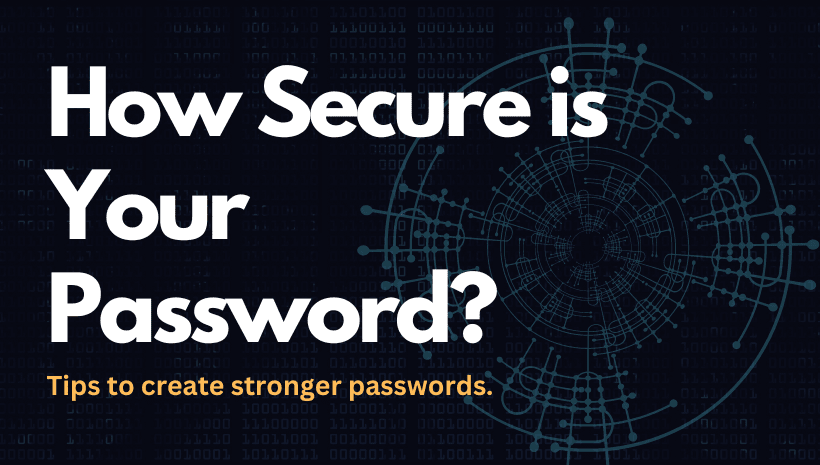Keep Your Passwords Strong and Secure: How Secure is Your Password?

Keep Your Passwords Strong and Secure: How Secure Is Your Password?
According to recent cyber security studies, things like “12345” and ‘” password “are among the most commonly used passwords. However, using simple passwords such as “12345”, your dog’s name, your last name or repeating the same password across multiple sites can leave you vulnerable.
Weak, predictable, or repeating passwords could provide cyber criminals with easy access to your accounts, putting your data at risk.
Here are some tips to create stronger passwords.
Make your password long. It’s recommended that your password should be a minimum length of 8–10 characters or longer if possible.
Include numbers, symbols, and uppercase and lowercase letters.
Make sure your password contains a combination of numbers, symbols, upper and lowercase characters. This makes your password complex and hard to crack.
Do not use old passwords.
Avoid using the same password across different accounts. If a hacker manages to crack the password for one of your accounts, and then they can use that same password to gain access to your other accounts.
Avoid common and popular passwords.
Hackers a very good at guessing common passwords. Avoiding using passwords that are easy to remember but offers zero security. such as “passwords”, qwerty or 123456.
Pick unique passwords for your accounts: Avoid using your pet’s name, your nick names, school, or your birthday as passwords. These types of passwords make it easier for hackers to access your accounts by simply guessing common pet names or finding publicly available information about you.
Use two-factor authentication.
Two-factor authentication (2FA) provides an added layer of security beyond your username and password.
A two-factor authentication requires 2 separate forms of identification in order to login. This much more secure than password protection alone.
Change it regularly.
Its best practice to change your passwords on a regular basis, usually every three months.
When it comes to keeping your passwords safe, adopting a proactive approach is your best bet against cyber-criminals.




